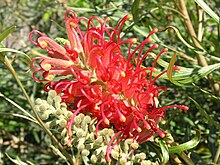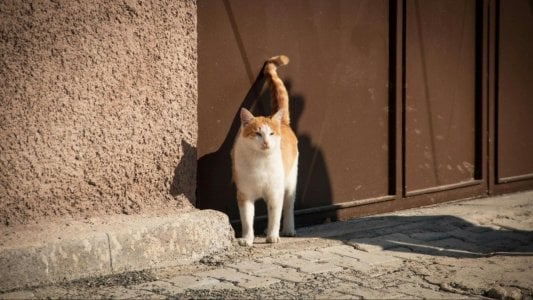‘A ticking time bomb’: Why you should rethink your Christmas shopping this year
By
Maan
- Replies 0
As the Christmas countdown intensifies, many Aussies are rushing to find the perfect gifts.
But what if your last-minute purchase is more than just a thoughtful gesture?
What seems like a harmless choice could actually have far-reaching consequences for the environment.
What you might not know is that some of your holiday buys could be causing more harm than good.
As Australians rush to purchase last-minute gifts this Christmas, they are being reminded to avoid unintentionally giving invasive species that could harm the environment.
Jack Gough from the Invasive Species Council urged, ‘We’re asking everyone to pick native, not invasive for Christmas.’
Whether you're buying plants or pets, Gough emphasised the importance of choosing gifts that won't damage Australia’s delicate landscape.
He suggested that instead of giving English ivy, which threatens local ecosystems, people could consider a creeping grevillea as a more environmentally friendly option.
‘Plants make great gifts but... instead of buying English ivy which is choking out our environment, why not buy a beautiful creeping grevillea instead?’ Gough said.
He warned that shoppers may unknowingly be gifting a ‘ticking time bomb’ with serious environmental consequences when these invasive species are planted in gardens.
English ivy, which is also invasive, is widely available in nurseries across the nation.
The gardening industry, Gough pointed out, is responsible for introducing 94 per cent of non-native plant species to Australia.
Gough also cautioned that pets, especially cats, can have a similarly devastating impact. ‘Cats can make a great gift but people often aren't ready for the responsibility,’ he warned.
‘Too often cats are allowed to roam or even dumped, which can have a catastrophic impact on our environment.’
This issue became particularly evident during the COVID-19 pandemic when increased pet ownership led to a rise in cat abandonment.
As a result, there was a significant contribution to the overpopulation of cats in shelters and on the streets.
Feral and domestic cats are responsible for the deaths of more than 300 million native animals annually due to free-roaming behaviour.
Nationally, cats, both feral and domestic, kill an estimated 2 billion native animals each year, according to the Australian Wildlife Conservancy.
‘If you have a cat it's your responsibility to keep it contained,’ Gough stressed.
‘That’s why we and other wildlife groups across the country are keen for clear rules that mean pet cats are kept safe at home and not out killing our wildlife.’
He also highlighted that in states like NSW and WA, outdated laws prevent councils from implementing cat containment or curfew laws. This, in turn, only exacerbates the problem.
By opting for non-invasive alternatives as gifts, Gough encourages responsible consumer behaviour.
He sees this as an opportunity to educate others on the importance of protecting Australia’s native biodiversity.
After all, the financial toll of managing invasive species is significant, with billions of dollars spent annually on eradication efforts, habitat restoration, and lost agricultural productivity.
If you're looking for a gift that’s both thoughtful and responsible, there’s a must-have product at Kmart that’s quickly becoming a holiday favourite.
Curious to find out what it is? Read the full article here.

What steps will you take this Christmas to ensure your presents don’t contribute to a growing problem? Share your thoughts with us in the comments.
But what if your last-minute purchase is more than just a thoughtful gesture?
What seems like a harmless choice could actually have far-reaching consequences for the environment.
What you might not know is that some of your holiday buys could be causing more harm than good.
As Australians rush to purchase last-minute gifts this Christmas, they are being reminded to avoid unintentionally giving invasive species that could harm the environment.
Jack Gough from the Invasive Species Council urged, ‘We’re asking everyone to pick native, not invasive for Christmas.’
Whether you're buying plants or pets, Gough emphasised the importance of choosing gifts that won't damage Australia’s delicate landscape.
He suggested that instead of giving English ivy, which threatens local ecosystems, people could consider a creeping grevillea as a more environmentally friendly option.
‘Plants make great gifts but... instead of buying English ivy which is choking out our environment, why not buy a beautiful creeping grevillea instead?’ Gough said.
He warned that shoppers may unknowingly be gifting a ‘ticking time bomb’ with serious environmental consequences when these invasive species are planted in gardens.
English ivy, which is also invasive, is widely available in nurseries across the nation.
The gardening industry, Gough pointed out, is responsible for introducing 94 per cent of non-native plant species to Australia.
Gough also cautioned that pets, especially cats, can have a similarly devastating impact. ‘Cats can make a great gift but people often aren't ready for the responsibility,’ he warned.
‘Too often cats are allowed to roam or even dumped, which can have a catastrophic impact on our environment.’
This issue became particularly evident during the COVID-19 pandemic when increased pet ownership led to a rise in cat abandonment.
As a result, there was a significant contribution to the overpopulation of cats in shelters and on the streets.
Feral and domestic cats are responsible for the deaths of more than 300 million native animals annually due to free-roaming behaviour.
Nationally, cats, both feral and domestic, kill an estimated 2 billion native animals each year, according to the Australian Wildlife Conservancy.
‘If you have a cat it's your responsibility to keep it contained,’ Gough stressed.
‘That’s why we and other wildlife groups across the country are keen for clear rules that mean pet cats are kept safe at home and not out killing our wildlife.’
He also highlighted that in states like NSW and WA, outdated laws prevent councils from implementing cat containment or curfew laws. This, in turn, only exacerbates the problem.
By opting for non-invasive alternatives as gifts, Gough encourages responsible consumer behaviour.
He sees this as an opportunity to educate others on the importance of protecting Australia’s native biodiversity.
After all, the financial toll of managing invasive species is significant, with billions of dollars spent annually on eradication efforts, habitat restoration, and lost agricultural productivity.
If you're looking for a gift that’s both thoughtful and responsible, there’s a must-have product at Kmart that’s quickly becoming a holiday favourite.
Curious to find out what it is? Read the full article here.
Key Takeaways
- The COVID-19 pandemic saw a rise in pet ownership, leading to an increase in cat abandonment and a growing overpopulation of cats in shelters and on the streets.
- Feral and domestic cats are responsible for the deaths of millions of native Australian animals each year.
- Outdated laws in states like NSW and WA prevent councils from enforcing cat containment or curfew regulations, worsening the issue.
- Encouraging responsible pet ownership and offering non-invasive alternatives for gifts can help protect Australia’s native biodiversity.
What steps will you take this Christmas to ensure your presents don’t contribute to a growing problem? Share your thoughts with us in the comments.









